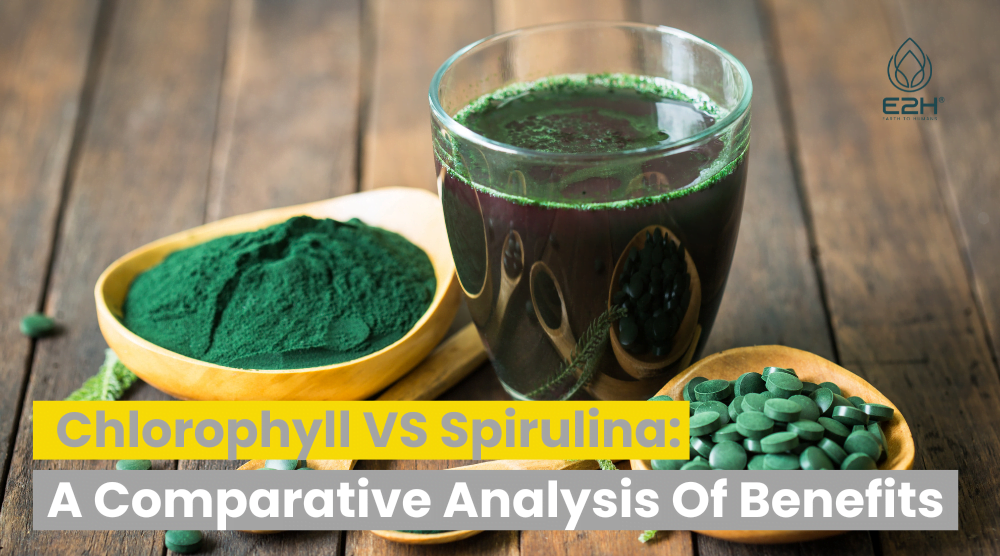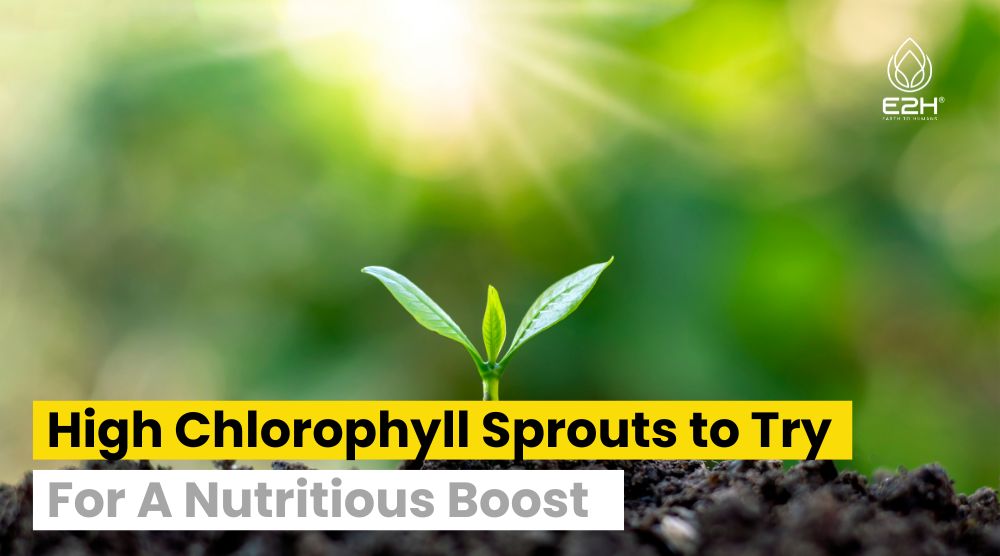Ashwagandha Benefits are numerous, and this powerful herb has been used for centuries in Ayurvedic medicine to support overall health and wellness. From reducing stress and anxiety to improving brain function and enhancing physical performance, ashwagandha has become increasingly popular in recent years as a natural alternative to traditional medicines. In this article, we will explore eight proven ashwagandha benefits and how they can positively impact your life.
Ayurvedic and conventional medical communities value ashwagandha for its adaptogenic properties. Its use dates back to the last 2,500 years. Ashwagandha has been utilized for therapeutic purposes for hundreds of years [1]. The herb is also called winter cherry or Indian ginseng.
Numerous studies have been conducted on ashwagandha for its possible benefits on the thyroid, anxiety, neuroprotection, and inflammation. The Indians call it the “strength of the stallion” because of its reputation for restoring health after sickness. As a “Rasayana” in Ayurvedic medicine, it is prescribed to improve one’s bodily and mental well-being.
What is Ashwagandha?
Ayurveda, a system of ancient Indian medicine based on the concepts of holistic healing, counts ashwagandha among its most significant herbs. Ashwagandha refers to the root’s distinctive aroma. To put it simply, a horse is an ashwa [2].
The ashwagandha plant is a little evergreen shrub that blooms in sunny yellow and is native to India, the Middle East, and some areas of Africa. Its history of usage in alternative medicine is extensive. The scientific name for this plant is Withania somnifera. However, you may know it better by the labels “Indian ginseng” or “winter cherry.” A wide variety of health problems, from stress to infertility, can be improved by taking an ashwagandha extract. [3]
How is it related to Indian ginseng?
Nutritional remedies are at the heart of herbalism in Asia. Two of the most well-known are Ashwagandha and ginseng, which have equivalent functions in Indian and Chinese medicine. Here is a brief account of the benefits of ashwagandha and ginseng.
Ginseng has been shown in human studies to reduce the effects of stress, improve physical and mental health, and boost memory, mood, and everyday weariness [4].On the other hand, Ashwagandha is the primary libido and mood enhancer in traditional medicine, particularly for males.
Ayurveda regards this long-term building herb as a Rasayana. Ginseng boosts human physical working capacity, promotes the central nervous system, balances blood glucose, and improves psychomotor performance [5] during exercise. In contrast, Ashwagandha is one of the most beneficial herbs for building muscle mass and strength [6].
Based on the above information, it can be concluded that both of these herbs are not entirely different and provides quite similar benefits.
Here are the 8 proven ashwagandha benefits
Enhances mood and reduces stress

The ability of ashwagandha to calm nerves is probably its most well-known health benefit. In addition, it’s an adaptogen, so it helps the body deal with things like cortisol and other stress hormones [7].
The hypothalamic-pituitary-adrenal (HPA) axis, which regulates your body’s stress response, is also suppressed [8]. Multiple studies have shown that ashwagandha pills may help reduce stress and anxious feelings [9].
In 2000, researchers found that ashwagandha was as effective as the anxiety medication lorazepam at reducing symptoms of stress and tension.
Taking 240 milligrams (mg) of ashwagandha per day significantly reduced stress levels compared to a placebo in a 2019 human investigation. It included a drop in the stress hormone cortisol.
Another human study conducted in 2019 found that daily dosing with either 250 mg or 600 mg of ashwagandha reduced both cortisol and self-reported stress [10].
While preliminary evidence suggests that ashwagandha may help alleviate stress and anxiety, additional study is needed to make that claim.
Improve cognitive function

Consuming ashwagandha may benefit cognitive function. One review of five clinical studies reported early proof that ashwagandha could enhance cognitive functioning in specific populations, including persons with schizophrenia and modest cognitive impairment in healthy elderly folks.
Withanolide D and Withaferin A are the two leading withanolides in ashwagandha that enhance cognitive operation [11].
Among the various cognitive function, ashwagandha is known to improve reaction speed, task performance, executive function, and focus.
A study of 50 adults revealed that taking 600 mg of ashwagandha extract daily for eight weeks improved attention, information processing rate, and mental skillfulness [12].
The nervous system and the brain are particularly vulnerable to the harmful effects of physical and psychological stress. The latest research indicates that ashwagandha may prevent neurodegenerative diseases like Parkinson’s and Alzheimer’s by protecting brain cells from damage.
According to short research published in the Journal of Dietary Supplements, ashwagandha helped those with moderate cognitive impairment remember things more vividly.
It contains potent antioxidants that eliminate free radicals that cause aging, which is a crucial factor in its effectiveness in restoring brain health.
Boost testosterone levels
Testosterone is a hormone in males that is associated with sex drive [13]. It also influences how men store fat in their bodies, muscle mass and bone density, and sperm production. Some findings suggest that ashwagandha may increase testosterone levels and boost male fertility.
In one study, healthy adults who took ashwagandha extract for eight weeks revealed significant differences in lower fatigue, testosterone levels, and enhanced vitality [14].
In one study, 43 overweight men between the ages of 40 and 70 with moderate weariness were administered ashwagandha extract or a placebo every day for eight weeks.
The ashwagandha treatment was connected with an 18% rise in DHEA-S, a sex hormone involved in testosterone production. Participants who drank the herb saw an increase in testosterone that was 14.7% larger than those who received a placebo. [15]
Further, four studies discovered that ashwagandha medicine particularly raised sperm concentration, semen volume, and sperm motility in males with intense sperm counts [16].
Men using ashwagandha during weight-lifting had five times greater testosterone levels, enhancing muscle mass and strength.
Ashwagandha may support increasing testosterone levels and may have some potential advantages for male fertility. Nevertheless, the investigators deduced insufficient data to demonstrate the positive effects of ashwagandha related to fertility in males and that more high-quality analyses are required [16].
Improve sexual function and fertility.
Ashwagandha is said to retain aphrodisiac-like qualities, improving sexual lust.
Continuous stress is a typical reason for declining sex drive, and inadequate sexual routine as ashwagandha presents stress comfort, which can influence sex drive and the capacity to relax sufficiently to enhance pleasure and desire [15].
Ashwagandha may help increase fertility in men. Examination shows that ashwagandha is influential in increasing sperm count and sperm motility in males undergoing infertility [17].
One investigation found identical outcomes, indicating that ashwagandha can enhance sperm count and motility immensely [18].
Ashwagandha’s spermatogenic action was also investigated in independent research, this time in individuals with low sperm quantities and potential male infertility. Forty-six guys were randomly assigned to receive either 675 milligrams of ashwagandha in three daily doses or a placebo for 90 days.
Serum hormone levels and sperm parameters were measured after therapy. The study found that ashwagandha increased sperm count by 167%, semen volume by 53%, and sperm motility (movement) by 57% in its study participants. Slight improvements were observed in the placebo group. [19]
In 2010, a study explained that ashwagandha supplementation enhanced testosterone levels in 75 men experiencing infertility screening.[20]
Improve sleep quality
Primary research indicates that ashwagandha may benefit individuals in falling asleep more quickly, staying asleep for longer, and feeling better sleep. For example, after six weeks of herbal supplementation, research participants rated their sleep as 72% satisfactory.
Many people consume ashwagandha to stimulate relaxing sleep.
For instance, a study of 50 adults ages 65–80 found that taking 600 mg of ashwagandha root daily for 12 weeks greatly improved sleep and mental attention upon awakening, compared with a placebo. [21]
Another study found that ashwagandha had a significantly small favorable impact on general sleep quality. Taking ashwagandha decreases people’s anxiety and makes them feel better when waking up. [22]
The withanolides in ashwagandha have been linked to several health advantages, including reducing stress and anxiety. Daily tiredness and poor sleep quality have both been linked to stress. Therefore, Ashwagandha is often used at bedtime to help people unwind and sleep better.
Numerous components of ashwagandha have been linked to its sedative effects. Sleepiness has been linked to natural trimethylene glycol. Some studies have linked ashwagandha to effects on GABA receptors, which play an important role in regulating sleep and wakefulness. Ashwagandha’s higher therapeutic results are likely due to other, as-yet-unidentified chemicals.
Reduce blood sugar levels
Because of its phenolic components, particularly flavonoids, ashwagandha has been examined for its antidiabetic effects. According to the results, flavonoids have hypoglycemic effects. Based on the results of a rat study [23], researchers concluded that ashwagandha leaf extracts and roots helped normalize blood sugar levels in diabetic rats.
An assessment of 24 studies, including five clinical investigations in individuals with diabetes, revealed that therapy with ashwagandha lowered hemoglobin A1c (HbA1c), insulin, blood lipids, blood sugar, and oxidative anxiety features [24].
It’s acknowledged that specific compounds within ashwagandha, including one named withaferin A (WA), have decisive antidiabetic activity and may help promote your cells’ consumption of glucose from your bloodstream [25].
Research published in the journal Reports of Biochemistry and Molecular Biology found that when ashwagandha was administered to fructose-fed rats, it prevented[26] fructose-induced increases in glucose, inflammation, and insulin resistance.
This data suggests that ashwagandha extract can improve insulin sensitivity and reduce human pro-inflammatory characteristics. In addition, Ashwagandha may reduce blood sugar by influencing insulin release and the capacity of cells to absorb glucose from circulation. However, the evidence is weak.
Nevertheless, research is currently limited, and more well-designed investigations are required.
Improves athletic performance
Ashwagandha may be a valuable supplement for athletes and benefit athletic performance.
Research studies discovered that consuming ashwagandha greatly improved VO2 max in athletes[27] and healthy adults. VO2 max is the maximum quantity of oxygen an individual can use during extreme exercise.
Another investigation contained 12 studies of women and men who took ashwagandha 120-1,250 mg daily. The outcomes indicate that herbs may improve physical performance, including muscles and oxygen during activity [28].
Ashwagandha is a valuable supplement for folks encountering resistance exercise and different states of workout that can be harsh on their muscles.
In one research, male participants who took 600 mg of ashwagandha per day and engaged in resistance training for eight weeks showed a considerably more significant increase in muscular strength and size than those who received a placebo [29].
Another study indicates that ashwagandha can raise persistence during physical exercise by declining pain and boosting brain operations in athletes.
In 2015, researchers in India tested ashwagandha extracts on fifty healthy adult athletes to see how they fared. Maximum oxygen use during a 20-minute shuttle run was calculated. After therapy, participants were asked to complete a questionnaire to assess any changes in quality of life. Ashwagandha extracts enhanced cardiorespiratory endurance.
Help in certain mental health-related diseases
Some proof indicates that ashwagandha may support relieving physical and mental health symptoms, including depression, in particular populations.
Ashwagandha is effective in treating stress and anxiety, and there is some evidence that it can assist with depression as well. According to many studies, using this plant regularly enhances a person’s quality of life by making them more resilient to the negative effects of stress.
In one investigation, researchers looked at the consequences of ashwagandha on 66 people with schizophrenia who were encountering depression and stress.
They discovered that participants who took 1,000 mg of ashwagandha extract every day for 12 weeks had greater drops in depression and stress than those who took a placebo [30].
The effectiveness of ashwagandha was compared to the antidepressant medicine imipramine in research using rats in 2000. In “learned helplessness” and “behavioral despair” trials in rats, researchers found it to have antidepressant effects comparable to imipramine.
Restricted research from 2013 also implies that ashwagandha may help enhance cognitive impairment in people with bipolar disease. Further, a study from 2012 found that stressed adults who took 600 mg of ashwagandha extract daily for 60 days reported a 77% decline in depression, while the placebo group reported a 5% reduction. [31]
Who should not be using Ashwagandha?
Although the long-term consequences of ashwagandha are unknown, it is a safe supplement for most people. For example, one research of 80 healthy men and women found that consuming 600 mg of ashwagandha daily for eight weeks was harmless and had no negative health consequences.
Several people, such as pregnant women, should not use it because large doses may result in pregnancy loss. Ashwagandha should also be avoided by persons with hormone-sensitive prostate cancer and those taking certain drugs, such as benzodiazepines.
Furthermore, ashwagandha is safe to use for thyroid problems. However, it is better to consult with your doctor before taking it.
What is the daily recommended dosage?
The dosage of ashwagandha and its use depend on the illness being treated. Therefore, Ashwagandha dosage recommendations differ from person to person. According to certain studies, ingesting 250-600 mg daily can help alleviate stress. However, in other investigations, much greater doses were employed.
The herb comes from a pill, ashwagandha powder, or a liquid extract. You can consume ashwagandha in multiple ways, in either a single dose or multiple doses per day, and you can take it with food or on an empty stomach.
Note: Regardless of the various forms, ashwagandha benefits are more pronounced when taken in liquid form as it has a better chance of absorption from the gut.
Risks and side effects of using too much ashwagandha
Ashwagandha comprises the withanolides withanolide A, withaferin A, and withanone. These are unique to this plant and offer a wide range of medicinal effects.
When choosing an ashwagandha extract, it is important to examine the region from where it was harvested because some parts of the plant have more of these components than others. For example, the quantities of withaferin A in ashwagandha leaf extracts are generally greater than in root extracts.
Ashwagandha is often well tolerated in low to moderate dosages. But there need to be more long-term experiments to examine the risks properly. Upper stomach pain, drowsiness, and diarrhea are side effects encountered by some people using ashwagandha pills. Stop taking the herb immediately if you have any of these symptoms since they may result from intestinal mucosal irritation.
As there is currently no data available about the safety of herbal supplements and breastfeeding, it is strongly advised that pregnant and nursing mothers avoid using this product at all costs.
Diseases of the immune system, such as multiple sclerosis, lupus, and rheumatoid arthritis, may be made worse by ashwagandha.
Stop taking ashwagandha two weeks before surgery if you need an anesthetic since it may further slow down your central nervous system.
How to avoid adverse effects?
Follow the ashwagandha dose recommendations carefully to get the most out of your supplement and reduce the risk of negative effects. If a high-quality supplement is used, the health benefits of ashwagandha can be taken to the fullest without the risks of ashwagandha capsules. It is important to do your research before making a purchase.
You can try decreasing your dosage of ashwagandha root or ashwagandha tea if you experience any unwanted side effects. Withanolides are the predominant phytochemical in supplements, so look for doses between 1% and 10%.
Buying and using Ashwagandha root extract supplementation
These days, you can get your ashwagandha in a wide range of handy varieties, from capsules and pills to tinctures and raw powder to an ever-expanding selection of branded beverages and snack foods. However, it’s important to remember that ashwagandha’s effects are cumulative and best seen through liquid extracts, so regular use is necessary for the root extract to have any noticeable long-term effects.
Ashwagandha was traditionally eaten with milk. The bitter, earthy flavor of ashwagandha can be difficult to disguise when used in big doses. However, liquid supplements also solve this problem as they offer good taste and all the benefits.
To maintain a consistent daily dose, it is recommended that you seek products that contain a significant amount of ashwagandha. You should avoid whole herb preparations, which may contain only trace amounts.
The strength and purity of ashwagandha in various products might vary considerably according to how the herb is produced, if the product is standardized, and quality standards. When the label states non-standardized, non-generic ashwagandha of unknown potency, it is hard to tell what you are receiving.
Conclusion
One of the most widely used adaptogens, ashwagandha is an essential Ayurvedic herb with a wide range of positive effects on physiological systems like the immune, nervous, endocrine, and reproductive ones. Increased thyroid function, higher energy, relief from adrenal exhaustion, decreased cortisol levels, reduced stress and anxiety, and enhanced depression are among ashwagandha’s most studied and prominent medicinal advantages.
In general, ashwagandha has a good reputation for being safe to use. If you want a high-quality liquid extract of ashwagandha root, visit Earth to Humans. Here you can also find several other supplements of excellent quality.
References
1. Tandon N, Yadav SS. Safety and clinical effectiveness of Withania Somnifera (Linn.) Dunal root in human ailments. Journal of Ethnopharmacology. 2022 Oct 17;255:112768.
2. Sriperumbuduri S, Umar MS, Lajoie-Starkell G, Fairhead TR, Hiremath S. Ashwagandha and Kidney Transplant Rejection. Kidney International Reports [Internet]. 2022 Oct 17 [cited 2021 Sep 12];5(12):2375–8. Available from: https://www.ncbi.nlm.nih.gov/pmc/articles/PMC7710824/
3. Ashwagandha [Internet]. PubMed. Bethesda (MD): National Institute of Diabetes and Digestive and Kidney Diseases; 2012 [cited 2022 Oct 17]. Available from: https://www.ncbi.nlm.nih.gov/books/NBK548536/
4. Arring NM, Millstine D, Marks LA, Nail LM. Ginseng as a Treatment for Fatigue: A Systematic Review. The Journal of Alternative and Complementary Medicine. 2022 Oct 17;24(7):624–33.
5. Ziemba AW, Chmura J, Kaciuba-Uscilko H, Nazar K, Wisnik P, Gawronski W. Ginseng Treatment Improves Psychomotor Performance at Rest and During Graded Exercise in Young Athletes. International Journal of Sports Nutrition. 2022 Oct 17;9(4):371–7.
6. Wankhede S, Langade D, Joshi K, Sinha SR, Bhattacharyya S. Examining the effect of Withania somnifera supplementation on muscle strength and recovery: a randomized controlled trial. Journal of the International Society of Sports Nutrition [Internet]. 2022 Oct 17;12:43. Available from: https://www.ncbi.nlm.nih.gov/pubmed/26609282
7. Salve J, Pate S, Debnath K, Langade D. Adaptogenic and Anxiolytic Effects of Ashwagandha Root Extract in Healthy Adults: A Double-blind, Randomized, Placebo-controlled Clinical Study. Cureus [Internet]. 2022 Oct 17;11(12). Available from: https://www.ncbi.nlm.nih.gov/pmc/articles/PMC6979308/
8. Lopresti AL, Smith SJ, Malvi H, Kodgule R. An investigation into the stress-relieving and pharmacological actions of an ashwagandha (Withania somnifera) extract: A randomized, double-blind, placebo-controlled study. Medicine [Internet]. 2022 Oct 17;98(37):e17186. Available from: https://www.ncbi.nlm.nih.gov/pubmed/31517876
9. Holland K. What Is Anxiety? [Internet]. Healthline. 2018 [cited 2022 Oct 17]. Available from: https://www.healthline.com/health/anxiety
10. Speers AB, Cabey KA, Soumyanath A, Wright KM. Effects of Withania somnifera (Ashwagandha) on Stress and the Stress-Related Neuropsychiatric Disorders Anxiety, Depression, and Insomnia. Current Neuropharmacology. 2022 Oct 17;19.
11. Ng QX, Loke W, Foo NX, Tan WJ, Chan HW, Lim DY, et al. A systematic review of the clinical use of Withania somnifera (Ashwagandha) to ameliorate cognitive dysfunction. Phytotherapy Research. 2022 Oct 17;34(3):583–90.
12. Choudhary D, Bhattacharyya S, Bose S. Efficacy and Safety of Ashwagandha (Withania somnifera (L.) Dunal) Root Extract in Improving Memory and Cognitive Functions. Journal of Dietary Supplements. 2022 Oct 17;14(6):599–612.
13. Gurevich R. Testosterone in Men and Women [Internet]. Verywell Health. Verywell Health; 2009 [cited 2022 Oct 17]. Available from: https://www.verywellhealth.com/what-is-testosterone-why-is-it-important-1960146
14. Lopresti AL, Smith SJ, Malvi H, Kodgule R. An investigation into the stress-relieving and pharmacological actions of an ashwagandha (Withania somnifera) extract: A randomized, double-blind, placebo-controlled study. Medicine [Internet]. 2022 Oct 17;98(37):e17186. Available from: https://www.ncbi.nlm.nih.gov/pubmed/31517876
15. Lopresti AL, Drummond PD, Smith SJ. A Randomized, Double-Blind, Placebo-Controlled, Crossover Study Examining the Hormonal and Vitality Effects of Ashwagandha (Withania somnifera) in Aging, Overweight Males. American Journal of Men’s Health. 2022 Oct 17;13(2):155798831983598.
16. Durg S, Shivaram SB, Bavage S. Withania somnifera (Indian ginseng) in male infertility: An evidence-based systematic review and meta-analysis. Phytomedicine. 2018 Nov;50:247–56.
17. Sengupta P, Agarwal A, Pogrebetskaya M, Roychoudhury S, Durairajanayagam D, Henkel R. Role of Withania somnifera (Ashwagandha) in the management of male infertility. Reproductive BioMedicine Online. 2022 Oct 17;36(3):311–26.
18. Ambiye VR, Langade D, Dongre S, Aptikar P, Kulkarni M, Dongre A. Clinical Evaluation of the Spermatogenic Activity of the Root Extract of Ashwagandha (Withania somnifera) in Oligospermic Males: A Pilot Study. Evidence-Based Complementary and Alternative Medicine [Internet]. 2013 [cited 2022 Oct 17];2013:1–6. Available from: https://downloads.hindawi.com/journals/ecam/2013/571420.pdf
19. Ambiye VR, Langade D, Dongre S, Aptikar P, Kulkarni M, Dongre A. Clinical Evaluation of the Spermatogenic Activity of the Root Extract of Ashwagandha (Withania somnifera) in oligospermic Males: A Pilot Study. Evidence-Based Complementary and Alternative Medicine [Internet]. 2013 [cited 2022 Oct 17];2013:1–6. Available from: https://downloads.hindawi.com/journals/ecam/2013/571420.pdf
20. Ahmad MK, Mahdi AA, Shukla KK, Islam N, Rajender S, Madhukar D, et al. Withania somnifera improves semen quality by regulating reproductive hormone levels and oxidative stress in seminal plasma of infertile males. Fertility and sterility [Internet]. 2022 Oct 17;94(3):989–96. Available from: https://www.ncbi.nlm.nih.gov/pubmed/19501822
21. Kelgane SB, Salve J, Sampara P, Debnath K. Efficacy and Tolerability of Ashwagandha Root Extract in the Elderly for Improvement of General Well-being and Sleep: A Prospective, Randomized, Double-blind, Placebo-controlled Study. Cureus. 2022 Oct 17;
22. Cheah, K. L., Norhayati, M. N., Yaacob, L. H., & Rahman, R. A. (2021). Effect of Ashwagandha (Withania somnifera) extract on sleep: A systematic review and meta-analysis. PLoS ONE, 16(9). https://doi.org/10.1371/journal.pone.0257843
23. Udayakumar R, Kasthurirengan S, Mariashibu TS, Rajesh M, Anbazhagan VR, Kim SC, et al. Hypoglycaemic and Hypolipidaemic Effects of Withania somnifera Root and Leaf Extracts on Alloxan-Induced Diabetic Rats. International Journal of Molecular Sciences [Internet]. 2009 May 20 [cited 2022 Oct 17];10(5):2367–82. Available from: https://www.ncbi.nlm.nih.gov/pmc/articles/PMC2695282/
24. Durg S, Bavage S, Shivaram SB. Withania somnifera (Indian ginseng) in diabetes mellitus: A systematic review and meta‐analysis of scientific evidence from experimental research to clinical application. Phytotherapy Research. 2022 Oct 17;34(5):1041–59.
25. Gorelick J, Rosenberg R, Smotrich A, Hanuš L, Bernstein N. Hypoglycemic activity of withanolides and elicitated Withania somnifera. Phytochemistry [Internet]. 2022 Oct 17;116:283–9. Available from: https://www.ncbi.nlm.nih.gov/pubmed/25796090
26. Samadi Noshahr Z, Shahraki MR, Ahmadvand H, Nourabadi D, Nakhaei A. Protective effects of Withania somnifera root on inflammatory markers and insulin resistance in fructose-fed rats. Reports of biochemistry & molecular biology [Internet]. 2022 Oct 17;3(2):62–7. Available from: https://www.ncbi.nlm.nih.gov/pmc/articles/PMC4757043/
27. Pérez-Gómez J, Villafaina S, Adsuar JC, Merellano-Navarro E, Collado-Mateo D. Effects of Ashwagandha (Withania somnifera) on VO2max: A Systematic Review and Meta-Analysis. Nutrients. 2022 Oct 17;12(4):1119.
28. Bonilla DA, Moreno Y, Gho C, Petro JL, Odriozola-Martínez A, Kreider RB. Effects of Ashwagandha (Withania somnifera) on Physical Performance: Systematic Review and Bayesian Meta-Analysis. Journal of Functional Morphology and Kinesiology. 2022 Oct 17;6(1):20.
29. Wankhede S, Langade D, Joshi K, Sinha SR, Bhattacharyya S. Examining the effect of Withania somnifera supplementation on muscle strength and recovery: a randomized controlled trial. Journal of the International Society of Sports Nutrition [Internet]. 2022 Oct 17;12:43. Available from: https://www.ncbi.nlm.nih.gov/pubmed/26609282
30. Gannon JM, Brar J, Rai A, Chengappa KNR. Effects of a standardized extract of Withania somnifera (Ashwagandha) on depression and anxiety symptoms in persons with schizophrenia participating in a randomized, placebo-controlled clinical trial. Annals of Clinical Psychiatry: Official Journal of the American Academy of Clinical Psychiatrists [Internet]. 2022 Oct 17;31(2):123–9. Available from: https://pubmed.ncbi.nlm.nih.gov/31046033/
31. K C, J K, S A. A Prospective, Randomized Double-Blind, Placebo-Controlled Study of Safety and Efficacy of a High-Concentration Full-Spectrum Extract of Ashwagandha Root in Reducing Stress and Anxiety in Adults [Internet]. Indian journal of psychological medicine. 2022 [cited 2022 Oct 17]. Available from: https://pubmed.ncbi.nlm.nih.gov/23439798/












